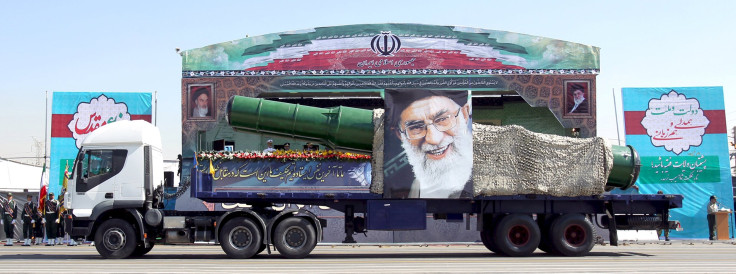US Needs More Time To Decide On New Iran Sanctions Before Nuclear Deal Implementation

The White House is not ready to implement the Iranian nuclear deal because it needs time to draft new sanctions against the country over its ballistic program, officials said Saturday. President Hassan Rouhani ordered his defense minister on Thursday to expand Iran's missile program after the U.S. threatened to impose sanctions over a ballistic missile test Iran carried out in October.
“We have additional work that needs to be done before we would announce additional designations, but this is not something that we would negotiate with the Iranian government," deputy national security adviser Ben Rhodes told reporters in Hawaii, where President Barack Obama is on vacation, Reuters reported. “I would expect the Iranians to complete the work necessary to move forward with implementation in the coming weeks."
The United States, Britain, France and Germany called for the United Nations Security Council's Iran sanctions committee to take action over a missile test by Tehran in October, contending the move violated a U.N. ban.
The U.S. confirmed that Iran tested a medium-range missile capable of delivering a nuclear weapon, in "clear violation" of a Security Council ban on ballistic missile tests.
"The United States is deeply concerned about Iran's recent ballistic missile launch," the U.S. ambassador to the United Nations, Samantha Power, said in a statement in October.
The Iran nuclear deal went into motion this summer and the International Atomic Energy Agency began overseeing Iran’s scaling back of its nuclear program, which consisted largely of deactivating centrifuges. U.S. and European companies then began making plans to begin trading, drafting contracts for future transactions.
But American companies, or companies owned by Americans, are not allowed to begin trading with Iran until "Implementation Day," a day designated in the nuclear agreement that marks the official lifting of sanctions and the beginning of trade. On Implementation Day, the U.N., European Union and U.S. will all lift certain nuclear-related sanctions against Iran.
But that day will only come when the IAEA verifies publicly that Iran has completed all of the required steps agreed upon in the nuclear deal. Until then, companies cannot trade with Iran, except for a limited number of sectors. And some restrictions will remain after Implementation Day, for instance, the supply of certain goods and technology relating to missiles.
Under the terms of the sanctions still in force, Iran is barred from purchasing certain commodities such as aircraft from U.S. and European entities — and U.S. and European entities are barred from selling them to Iran — until Tehran has satisfied inspectors from the IAEA that it has begun rolling back its nuclear program.
It is still unclear when the parties of the nuclear agreement will announce the timing of Implementation Day. U.S. officials have said it could be anytime in January, but the missile violation could push that day back.
© Copyright IBTimes 2024. All rights reserved.











